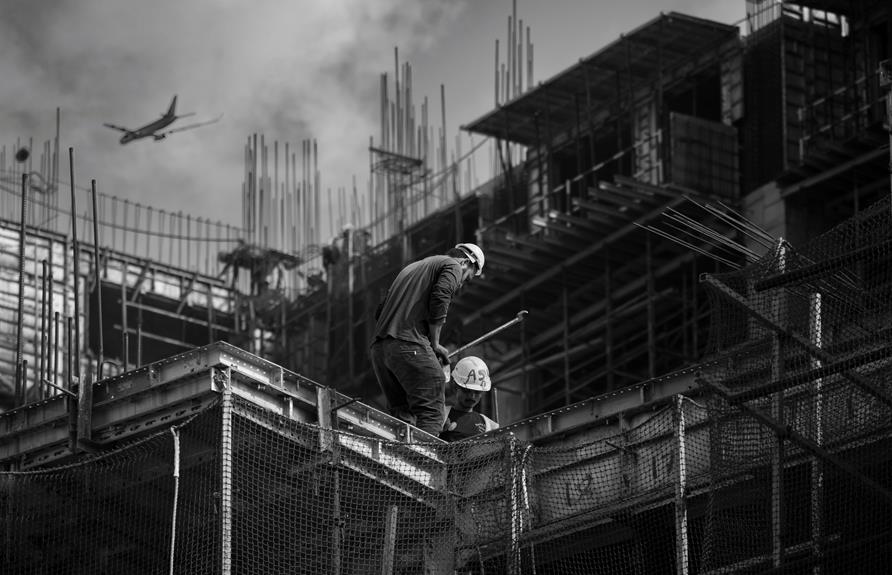Colorado Workers Seek Compensation After Workplace Injuries
Navigating the complexities of workers' compensation in Colorado can be challenging. This article serves as a comprehensive guide for understanding the process, rights, and responsibilities surrounding workplace injuries. From identifying the types of injuries covered to exploring potential legal actions against employers and highlighting the role of a workers' comp attorney, we equip you with the knowledge needed to manage your claim successfully. Understanding these aspects can significantly impact your financial and emotional recovery after a workplace injury.

Key Takeaways
- Over 6,000 workers in Colorado have filed more than 15,000 workers' compensation claims this year.
- Workers' compensation is a no-fault system that provides quick benefits without the need for legal action.
- Most employed individuals in Colorado should be covered by workers' compensation, with limited exceptions.
- Seek emergency treatment if necessary and report the injury to your employer immediately or within four days in Colorado.
Understanding Workers Compensation in Colorado
Understanding Colorado's workers' compensation system is crucial for employees to effectively navigate their injury claims and secure the benefits they are entitled to. This system is designed to provide injured workers with workers' compensation benefits, such as wage replacement and medical care, regardless of who is at fault for the injury. However, navigating the workers' compensation claims process can be complex and challenging. It is not uncommon for claims to be initially denied by insurers, requiring workers to engage in an appeals process. It's also important to note that certain conditions apply concerning the type of injuries covered and the timeframe for reporting the injury. Ultimately, a comprehensive understanding of the system can better equip workers to access their rightful compensation benefits.
Procedure to Follow After a Workplace Injury
After a workplace injury occurs, it is essential for the employee to notify their employer within four days, as per the Colorado state law, to ensure the potential for compensation benefits is not compromised. Reporting injuries promptly allows for an accurate and timely investigation, which aids in determining the validity of the claim. Following the reporting, the next step is seeking medical treatment. Colorado law allows the employer to dictate the choice of physician for non-emergency treatment. Compliance with this rule is crucial to maintain eligibility for compensation. The importance of adhering to these procedures cannot be overstated; deviations risk the denial of benefits. To navigate this complex process successfully, employees may consider consulting a knowledgeable workers' compensation attorney.
Types of Injuries Covered Under Workers’ Compensation
During the course of employment, various types of injuries, such as overexertion, slip and fall, machine entanglement, falling objects, and vehicle accidents, are generally covered under workers' compensation in Colorado. It's crucial for workers to understand these rights after a workplace injury, as the benefits of workers' compensation not only cover medical bills but also reimburse for lost wages. However, compensation may be reduced if the employee's behavior, such as drug or alcohol use or non-compliance with safety rules, contributed to the injury. Workers must also remember that they have certain obligations, such as reporting the injury promptly and following treatment plans. Non-compliance may affect their eligibility for benefits. Therefore, understanding the types of injuries covered under workers' compensation is essential for every Colorado worker.
Circumstances for Legal Action Against Employers
In Colorado, employees can consider legal action against employers in circumstances such as failure to provide mandatory workers' compensation coverage or wrongful termination following a claim, and these lawsuits can result in significant financial penalties and reputational damage for the employer. It is crucial to understand that Colorado law protects employees from wrongful termination following a workers' compensation claim. This protection, known as the violation of public policy exception, safeguards employees who exercise their rights under the state's workers' compensation laws. Employers found guilty of wrongful termination can face severe penalties, including potential workers' compensation lawsuits. Furthermore, employers who fail to provide required workers' compensation coverage are exposed to direct tort actions, emphasizing the importance of complying with these mandatory insurance obligations.
The Importance of Hiring a Workers’ Compensation Attorney
Given the complexities involved in securing workers' compensation benefits, hiring a skilled attorney specializing in this field can prove invaluable, especially when dealing with denials or bad-faith actions by insurance companies. The benefits of legal representation include navigating the intricate legal system, negotiating fair settlements, and advocating for clients' rights during court proceedings. Lawyers can add value by ensuring their clients receive all eligible benefits. When considering hiring an attorney, factors to consider include experience, reputation, and success rate in workers' compensation cases. It's also essential to assess the attorney's understanding of local and state compensation laws. While the process may seem overwhelming, the importance of legal representation in such matters should not be underestimated.
Frequently Asked Questions
What Is the Process for Appealing a Denied Workers Compensation Claim in Colorado?
In Colorado, if a workers' compensation claim is denied, the appeal process involves submitting a written application to the Industrial Claim Appeals Office. The appeal must be based on a concrete legal issue and supported by robust claim documentation. A hearing before an administrative law judge may follow, during which evidence and testimonies are presented. If the denied appeal is still unresolved, it may be taken to the Colorado Court of Appeals. Legal assistance is often beneficial in these complex proceedings.
How Long Can an Injured Worker in Colorado Expect to Wait Before Receiving Workers Compensation Benefits?
In Colorado, the timeline for receiving workers' compensation benefits after claim filing can vary. Once an injured worker's claim is approved, they should start receiving payments within a few weeks. However, it's crucial to note that compensation eligibility is not automatic, and claims may be denied initially. If a claim is disputed or complex, the process can extend over several months, which highlights the importance of timely and accurate claim filing and possibly seeking legal counsel.
Are Emotional or Psychological Injuries Covered Under Workers’ Compensation in Colorado?
In Colorado, workers' compensation covers emotional or psychological injuries under certain conditions. The psychological injury criteria require that mental harm must be directly linked to a physical workplace injury. This is often referred to as "mental-physical" claims. Purely emotional trauma claims, termed "mental-mental," are generally not covered unless they result from an extraordinary, unusual event. Each case is assessed individually, and legal counsel is recommended for guidance.
How Does the Workers Compensation System in Colorado Differ From Other States?
The workers' compensation system in Colorado offers unique benefits and limitations compared to other states. While it provides coverage for medical expenses and lost wages, it excludes compensation for pain and suffering. Comparative state analysis shows Colorado's strict enforcement of the exclusive remedy rule, barring most lawsuits against employers. However, it allows common law tort actions against insurance carriers for bad faith, a provision not common in all states.
What Are Some Examples of Misconduct by Insurance Companies That Could Lead to a Bad Faith Lawsuit in Colorado?
In Colorado, misconduct by insurance companies that could lead to a bad faith lawsuit may include actions such as misleading the injured worker, contradicting established claim practices, and manipulating evidence. Other indicators of insurance fraud may include unfair settlement offers that do not adequately cover the injured worker's medical expenses and lost wages. In such instances, a bad faith lawsuit can be pursued to seek economic and non-economic damages.
Conclusion
In conclusion, understanding Colorado's workers' compensation law is crucial for employees seeking financial relief after a workplace injury. By recognizing the types of injuries covered, the correct procedure to follow post-injury, and the circumstances where legal action can be taken, employees can navigate this system more effectively. Engaging the services of a workers' compensation attorney further increases the likelihood of a successful claim, ensuring injured workers receive the benefits they are entitled to under Colorado law.




